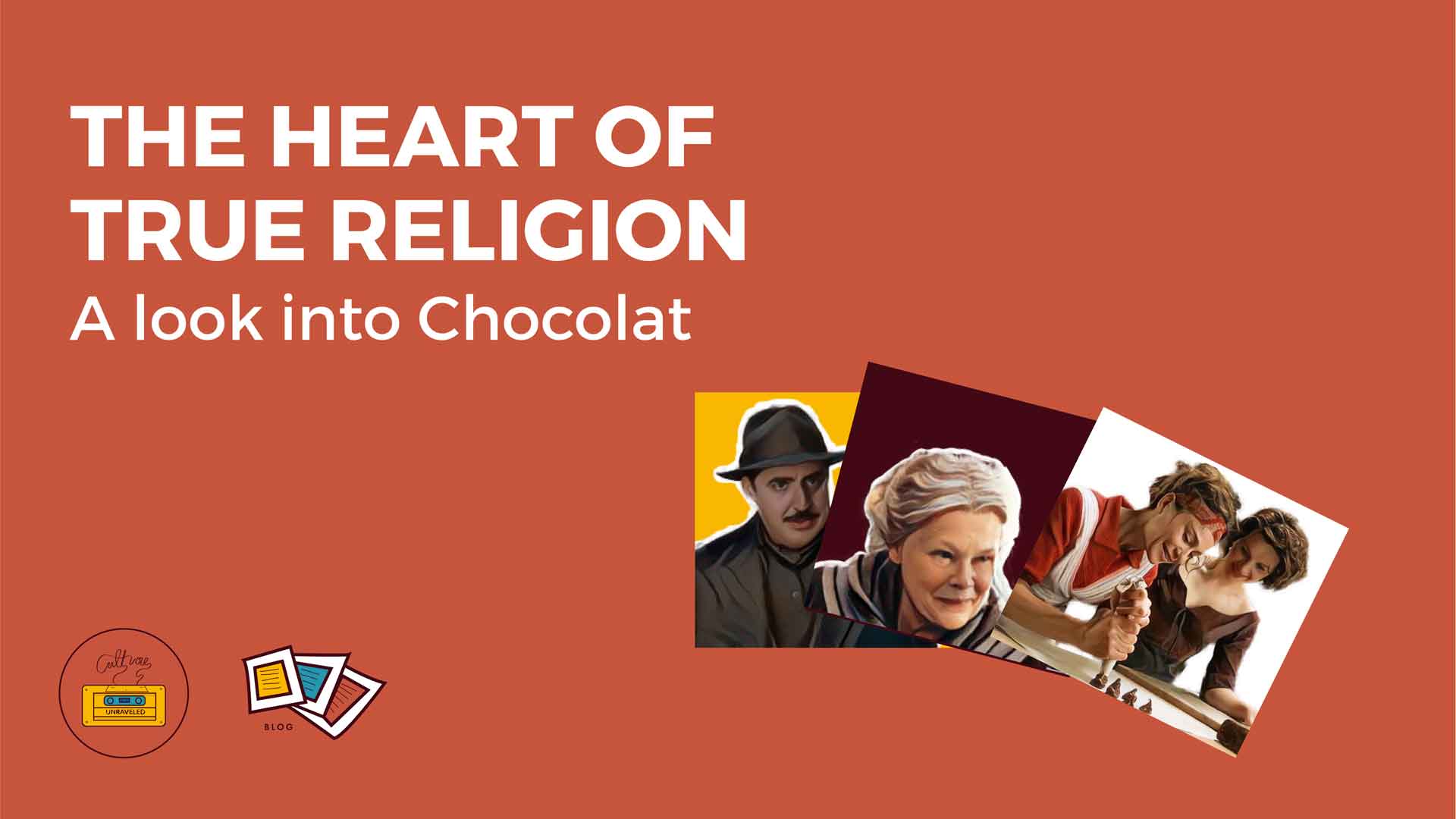The movie Chocolat, released in 2000, is about a woman Vianne, and her illegitimate daughter Anouk, who move into a very conservative Christian society and start a chocolate shop. They come head to head with the mayor Comte de Reynaud who takes it upon himself to keep the town people in their place with a very conformist idea of Christianity.
At first the movie just seems like a fight between Christianity on the one side and a self-indulgent paganistic lifestyle on the other. But as the movie progresses there are many more layers and hidden meanings that give the viewers much to think about!
When Vianne first moves into the village, she seems like the very opposite of everything the village represents – loose morality, non-church goer, indulging in sensual pleasures, living like a gypsy, doing whatever she wants. Comte de Reynaud, at the other end of the spectrum, is a very legalistic Christian, with a strong drive to live a puritan lifestyle that includes a lot of denying of pleasure and a strict adherence to rules. He has a strong sense of having to keep the entire village in check by ensuring that they conform to his idea of religion. Thus, there is a head-on clash between the views of Vianne and Comte de Reynaud.
What is very interesting is that although Vianne is not religious, she has such a strong sense of empathy, acceptance of people, caring and protecting them, helping them become better human beings – a person full of love and compassion. The Comte, on the other hand, who one would call a very religious ‘Christian’, following rules to a tee, comes across as a very controlling, gossiping, vindictive, judgmental person, one who completely lacks love.
We can see a parallel between the character of the Comte and the Pharisees in the Bible whom Jesus Christ is constantly in battle with. In fact they are portrayed as the worst enemies to real Christianity – ‘a form of godliness that denies its very power’. One would think that people with loose morals are the ones who are farthest from Christ, but it’s actually the religious whom Christ comes so strongly against. And it’s very sad to see that even though Christ condemned that so strongly when he lived on earth, it is still something the church struggles with today. A false sense of religion, a legalism that requires people to behave in a certain way to earn God’s favour, or to live as ‘good’ Christians. And this is something that turns away those who are earnestly seeking God.
The heart of Christianity is love. The Comte represents the exact opposite of love. He didn’t care about people. All he cared about was rules being followed. We see how he tried to make Serge, a wife beater, into a ‘good Christian’. He tried to make him conform to the rules. But at the end he failed miserably, because there was no love in his heart for him. Vianne, on the other hand, was able to transform many lives with her deep love for them – whether it be the hard-hearted, opinionated landlady, Armande, or Josephine, the incoherent, lost, broken wife of Serge. Her love and acceptance, and going out of her way to help people, were what showed them true love and helped transform them.
But what is fascinating is that the movie actually doesn’t portray a sensual, indulgent, non-conformist lifestyle. At the end, we see the struggles Vianne’s daughter faces with her mother constantly moving from one town to the other and not settling down, and Vianne’s own struggles with her past. But when the townspeople turn back and show her love and unconditional acceptance, she too changes. She is able to let go of her past, and makes a decision to settle down in the town. Thus Vianne too is transformed by the power of love.
The priest’s sermon at the end sums it up beautifully: “We can’t go around measuring our goodness by what we don’t do, by what we deny ourselves, what we resist, and who we exclude. We’ve got to measure goodness by what we embrace, what we create and who we include.”
Author:
Priyanka George

